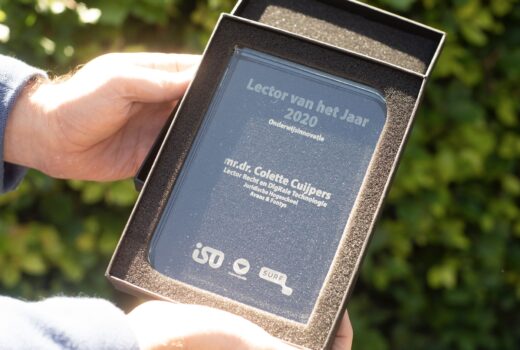No Einstein, nor a Jobs

Often ground-breaking social innovations have humble beginnings. Such was the case with the big turnaround of the public education system in New Orleans after hurricane Katrina and such was also the case with the restructuring of the University of Virginia. Frans Nauta, lector Innovation in the public sector at HAN University of Applied Science, wrote a new book with Sanderijn Cels and Jorrit de Jong: Agents of Change, strategy and Tactics for Social Innovation.
An ‘Agent of change’ does not have to be a genius ‘Einstein’, a charismatic Steve Jobs, they don’t have to have any special powers. What all innovators in Nauta’s book share is a relatively good idea to solve a problem, combined with a strong perseverance.
Incompetence and corruption
The innovators mastered three artistic formulas: ‘the art of making a start’, ‘the art of moving things forward’ and ‘the art of making sense’.
Agents of change paints an interesting picture of the public school overhaul by Leslie Jacobs, member of the New Orleans Board of Elementary and Secondary Education. She ran into a clear case of mismanagement: New Orleans accounted for 55 of the State’s 78 worst school. The board responsible for 127 public schools in the city was in debt for $ 265 million and $71 million was unaccounted for.
“Systemic incompetence is harder to fix than corruption and New Orleans had both”, Leslie Jacobs states in the book. What Jacobs succeeded in doing was to put into place an accountability system that clearly indicated which school were failing. In this way, she calculated, ‘failure was personalised’ and parents could start pressuring schools.
Katrina as intervention
The accountability system also made it possible for the Board of Elementary and Secondary Education to take failing schools of the system and give them a fresh start under some kind of ‘bankruptcy plan’ for public institutions: a ‘Recovery School District’.
As horrible as Hurricane Katrina was for the city and its citizens, it gave Leslie Jacobs together with other school reformers the opportunity to put 107 of the 127 public schools under the authority of a state run agency. The problems they had identified since the early nineties came into a completely new context. Practically all the weak higher education institutions became a ‘Recovery School District’. “We had done a lot of preparation. What Katrina allowed us to do was to put this change on steroids”, Jacobs says.
Negotiating with the State
The change in the higher education landscape in Virginia looks less revolutionary, but is no less interesting of groundbreaking. The University of Virginia’s relationship with government had been problematic for some time, when the university’s leadership decided on renegotiating the financial ties with the State.
First greater financial independence was proposed by the university, leaving the autonomy to set the tuition fees and the freedom to invest certain revenues. In exchange the monetary supply from the State would be cut with ten percent. Such a deal didn’t materialize, as skeptics feared the tuition levels would go through the roof.
In 2005 university and State government came to an agreement, resulting is greater autonomy with regard to the university’s operations in areas of finance and accounting, acquisition and disposition of real estate, information technology, procurement and human resource management. The State of Virginia in turn demanded accessibility, affordability, conservation of a broad range of academic programmes and high academic standards.
The Virginia case shows the several stages in a university’s bid for more autonomy, resulting in a charter proposal containing ‘more accountability and less red tape’. An inspiration for other higher education institutions.
Meest Gelezen
Vrouwen houden universiteit draaiende, maar krijgen daarvoor geen waardering
Wederom intimidatie van journalisten door universiteit, nu in Delft
Hbo-docent wil wel rolmodel zijn, maar niet eigen moreel kompas opdringen
‘Burgerschapsonderwijs moet ook verplicht worden in hbo en wo’
Raad van State: laat taaltoets nog niet gelden voor hbo-opleidingen


